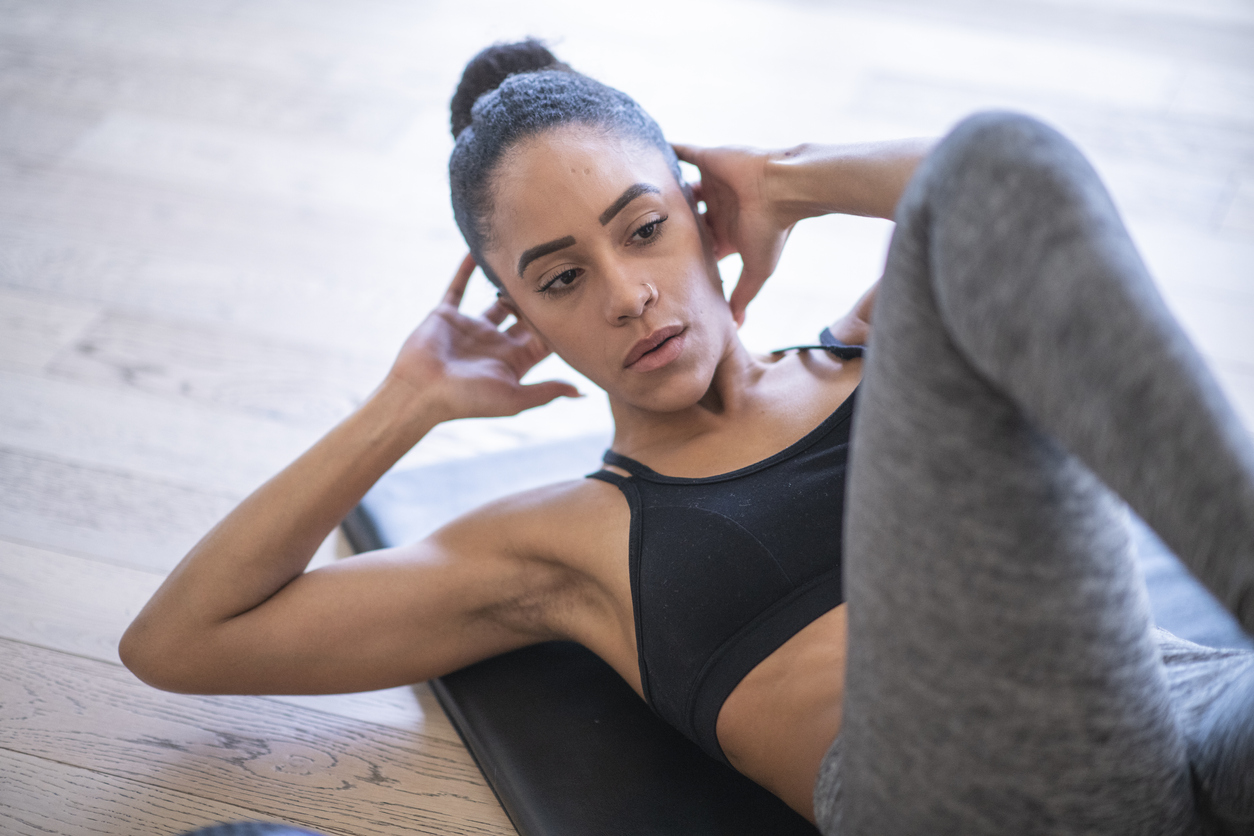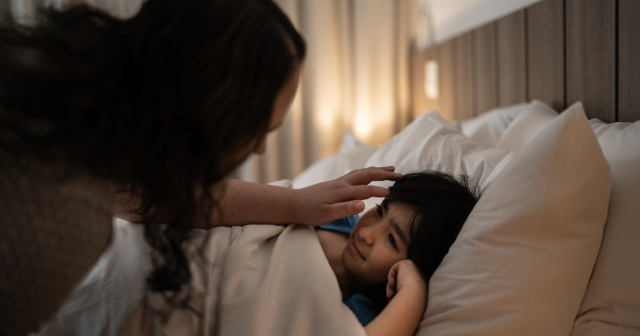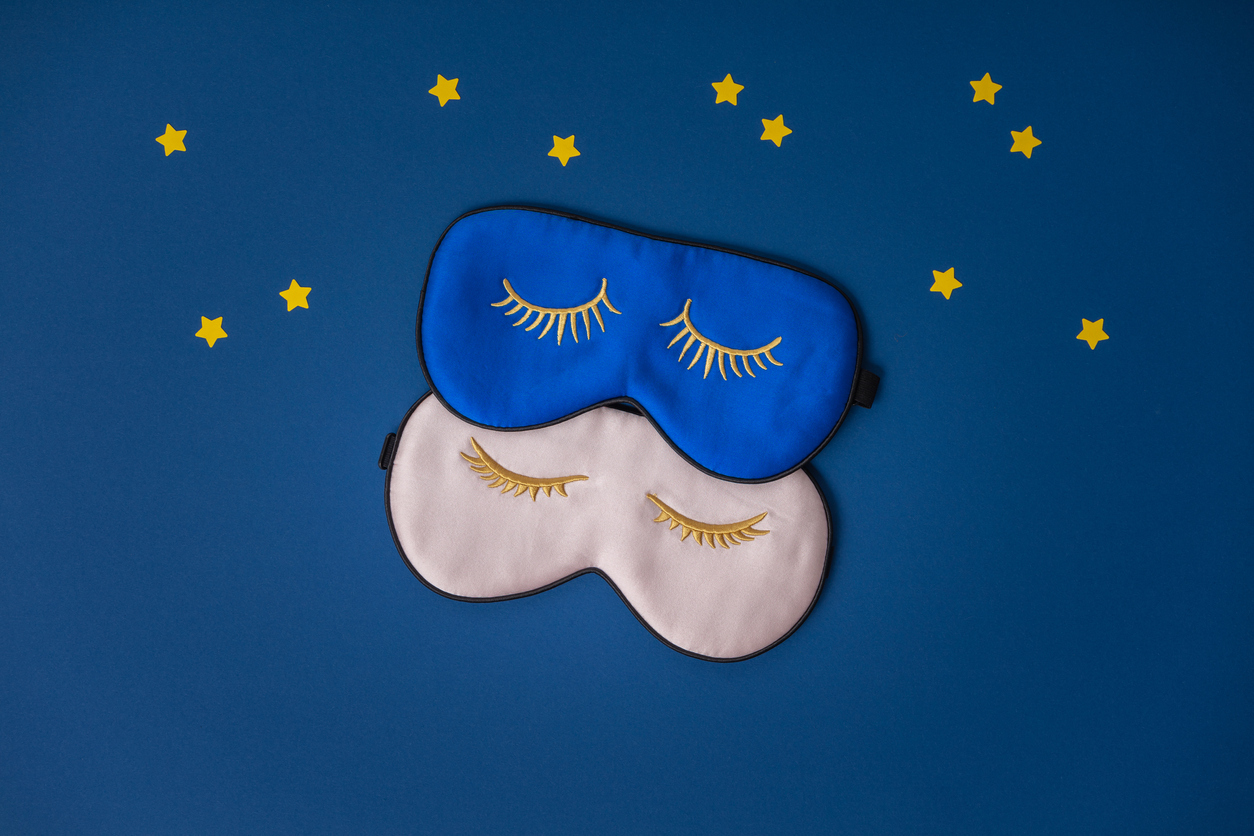Regular exercise is important for good sleep. It can help you fall asleep faster and wake up feeling refreshed. Exercise is also a great stress reliever. However, there’s a catch: working out too close to bedtime can make you feel too alert to sleep.
But how close to bedtime is too close? And do gentle exercises affect sleep in the same way as intense workouts?
If you’ve ever wondered why you can’t sleep after exercise, here’s everything you need to know to make sure your workouts help, rather than hinder, your sleep.
Why does exercise help sleep?
Regular exercise improves sleep, but the exact reason why is not fully understood. A theory is that since physical activity raises body temperature, a post-workout drop in body temperature may bring about good sleep.
Exercise may also improve poor sleep by reducing the symptoms of anxiety and depression that can keep you awake at night. And for those who struggle with insomnia because their circadian rhythm (body clock) is out of sync, exercise may help to synchronise the natural body clock.
Regardless of how exercise leads to better sleep, health professionals agree that it’s best to work out 4 or more hours before bedtime.
But it seems this rule may only apply to cardio workouts because not all types of exercise stimulate the body in the same way.
When is the best time to exercise?
The best time to do a workout depends on the type of exercise you plan to do.
Cardio exercise
Cardio or aerobic exercises such as running, cycling and swimming raise your heart rate, which can make you feel alert instead of relaxed. This is a key reason why it’s best to do a cardio workout at least 4 hours before bedtime. However, there’s another reason why morning cardio beats an evening workout.
When you sleep at night, your blood pressure naturally falls by 10% to 20%. It’s thought that an early morning cardio session is better at causing this drop in blood pressure than a midday or evening workout. This is great news for your overall health because a small fall in blood pressure at night is good for your heart and may help your body restore itself while you sleep.
So, how much cardio should you do?
According to current guidelines, adults aged 19 to 64 should get at least 150 minutes of moderate-intensity (or 75 minutes of vigorous-intensity) aerobic exercise each week.
Strength training
Building muscle can improve sleep quality while helping you to fall asleep faster and wake up less frequently during the night. That’s why strength-training exercises like shoulder presses, bicep curls, squats, sit-ups and push-ups are worth adding to your fitness routine if you would like better sleep.

Unlike aerobic exercise, strength training doesn’t seem to affect blood pressure at night, whether you do it in the morning, afternoon or night. This means that you can squeeze in a session as close to bedtime as you like without affecting your sleep.
It’s thought that morning strength workouts can help you fall asleep faster, while evening sessions may help you wake up less frequently during the night and sleep better overall.
However, everybody is different, so it’s important to try different exercise times to see which is the best fit for you.
Regardless of when you strength train, aim to work all the major muscles (legs, hips, back, abdomen, chest, shoulders and arms) at least twice a week.
If you’re not a fan of pumping weights, don’t worry. Strength training isn’t just about lifting weights. It also includes:
- working with resistance bands
- bodyweight exercises, such as lunges and push-ups
- heavy gardening, such as digging and shovelling
- yoga
- pilates
Intense workouts
For the time-poor, intense workouts like high-intensity interval training (HIIT) are ideal for reaping the health benefits of exercise in minimal time. But as these workouts raise your body temperature, accelerate your heart rate and stimulate your nervous system, they can cause sleep problems, especially if done too close to bedtime.
For some people, a post-workout drop in body temperature is perfect for bringing about a good night’s sleep. There’s no way to know how intense exercise will affect you, so why not experiment a little? Try your sessions at different times of the day and note how they affect your sleep.
And don’t forget that our sleep tracker can help you to keep track of how your sleep responds to changes in your exercise routine.




